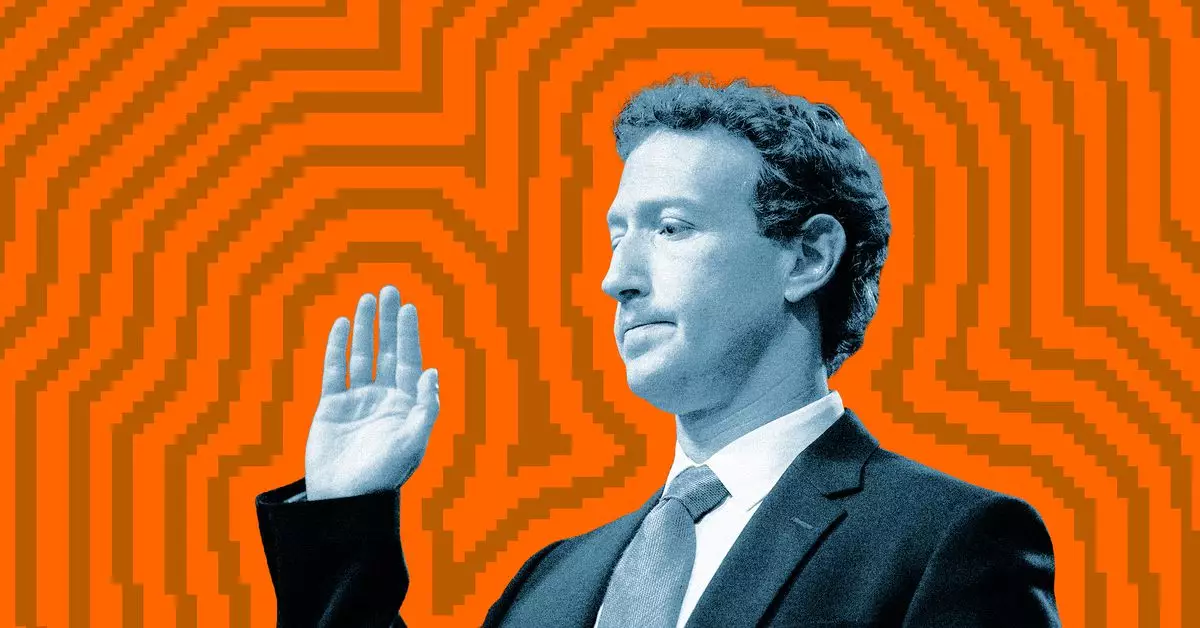In an unfolding narrative on the intersection of technology and politics, a recent dinner meeting between Meta CEO Mark Zuckerberg and President-elect Donald Trump has sparked conversations across various platforms. Scheduled at Trump’s Mar-a-Lago estate, this encounter signifies a pivotal moment that intertwines the future of American innovation with the socio-political landscape. The implications of this meeting extend beyond mere discussion; they touch on the accountability of tech giants in the political domain.
The meeting comes at a crucial juncture, primarily given ongoing debates surrounding the influence of social media in shaping electoral outcomes. Facebook, as one of the most notable social media platforms, has often found itself in the crosshairs of scrutiny, especially concerning its role in the 2020 presidential election. Critics, including some political figures, have voiced that the platform’s algorithms and policies could sway public opinion, thereby affecting democratic processes. Zuckerberg’s initiative to dine with Trump could be seen as an effort to mend relations and discuss pathways to mitigate potential regulatory challenges in the future.
Meta spokesperson Andy Stone made a statement that reverberates with a hint of optimism, suggesting that “it’s an important time for the future of American Innovation.” However, the positivity expressed may seem tepid against the backdrop of calls from political figures who demand accountability for Facebook’s actions during critical periods, like the presidential race. The juxtaposition of innovation with accountability raises questions on whether tech leaders should bear responsibility for the societal effects stemming from their platforms. This contention hints at the broader conversation of how innovation should be directed and regulated in order to respect democratic values.
As the tech industry progresses, it finds itself entangled in dilemmas that are not merely technical but ethical and political as well. Zuckerberg’s interactions with top political figures illustrate a growing recognition that the technology sector is interwoven with governmental policy. While innovation drives economic growth and creates opportunities, it concurrently demands a robust framework that governs its influence in public life. Conversations about regulation and ethical oversight are becoming increasingly urgent, especially as technology continues to advance at a breakneck pace.
Looking forward, it is essential for stakeholders in the technology sector to create spaces for dialogue that include not only leadership and innovation but also accountability and ethics. The meeting between Zuckerberg and Trump may represent a tactical engagement—one that seeks to navigate the complexities that come with being a tech leader in a highly politicized environment. For the future of American innovation, it is imperative to find a balance where technological advancement does not come at the expense of democratic integrity. The conversations initiated here may very well shape the guidelines and practices that govern the tech industry for years to come.
The dinner meeting between Zuckerberg and Trump symbolizes more than a mere gathering; it is emblematic of the changing tides in which technology and politics coexist. This engagement presents an opportunity for all involved to reflect on their roles in fostering a landscape that prioritizes both innovation and public responsibility, ensuring that the evolution of technology aligns with societal values. As we grapple with these discussions, the challenge lies in harnessing the power of innovation responsibly, paving the way for a future where democratic principles are upheld amidst rapid technological advancements.

